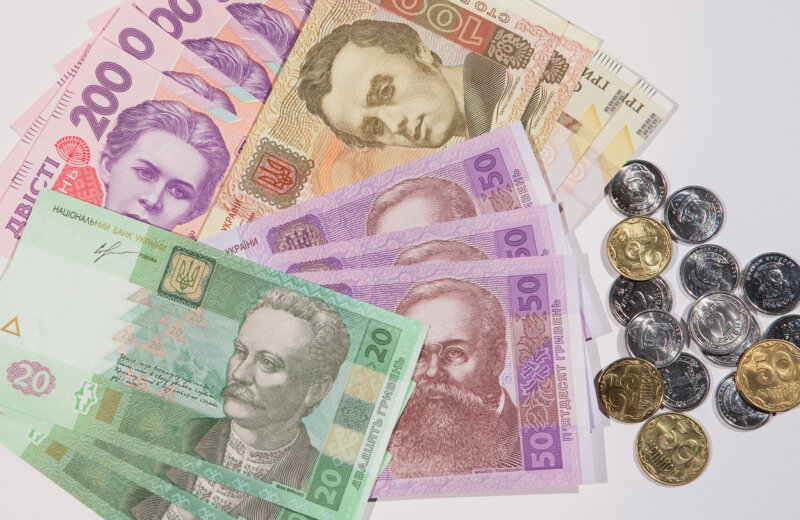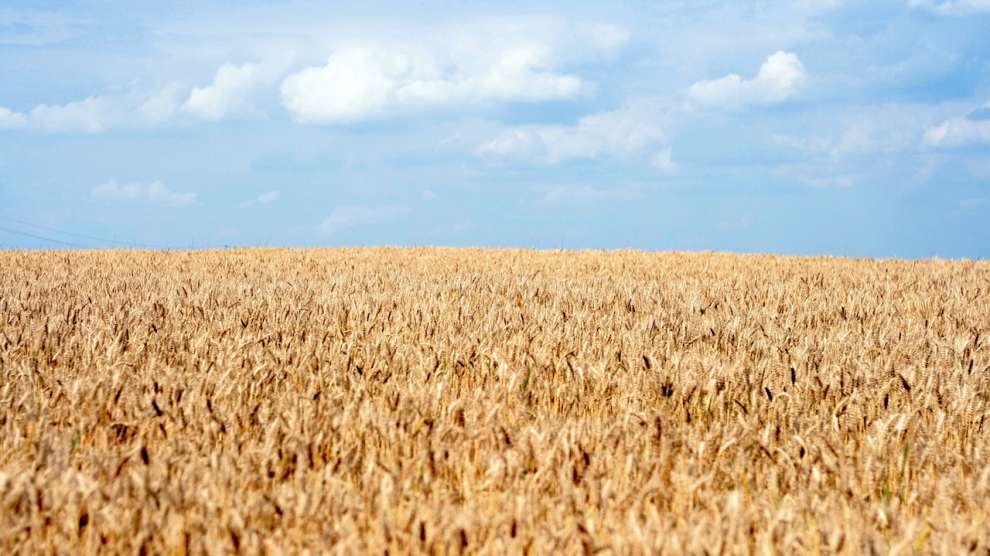To read the news about Ukraine is to observe an ongoing deluge of sad, upsetting and sometimes calamitous events. The seeds of development have certainly been planted through projects like the visa-free travel agreement with the EU, but it seems as though we never see their seedlings fully germinate, let alone flower. Odd, considering the country's famously rich soil, but not surprising given that the waters of peace and stability seldom reach its ground.
Still, hope springs eternal, even in the most arid of deserts, and perhaps there is a case to be made for a more reassured outlook on Ukraine. I have decided to play devil´'s advocate by making this case. The following are facts which suggest that better things may be in store for its beleaguered inhabitants.
In 2014, the year of the Maidan protests, the Ukrainian economy tanked, and it continued to drop the following year. Beginning in 2016, however, Ukraine´'s GDP has been growing every year, with each year´s growth exceeding the last one´'s. This can be seen from this World Bank graph.
It may not seem like much, but this means that Ukraine´'s economy has been not only growing, but accelerating its growth for years straight during a time of war. I´'m no economist, but if that´'s not proof that a nation has potential, I don´t know what is.
Consider also Ukraine´'s new status as the world´'s topmost grain exporter, a position which, until this year of 2019, was occupied by Russia. The Moscow Times, carrying this story, added that "Ukraine´'s grain exports were up 26% year-on-year".
Other sectors of the economy have been doing well, too. For instance, air travel has been booming, as several sources reported. Indeed, it seems the industry has been cruising sunny skies for a while, as a review of 2018 indicates, according to which the year saw Ukraine´'s air travel industry grow 30% with lots of future potential. The sector prospered, especially with regards to low-cost flights, partly due to the momentum provided by milestones such as Ryanair entering Ukraine and the creation of Ukrainian airline SkyUp. The latter connects Ukraine to a number of Muslim countries, with its first flight having gone to Sharm el-Sheikh.
Of course, the road ahead remains far from European standards of smoothness, with recent troubles over Arsen Avakov´'s appointment as minister of internal affairs leaving a chink in the idea that with the "Servant of the People" party´'s monumental support government and civil society might be in stable harmony. Kyiv Post saw President and Parliament "ignor[ing] civil society".
There is, sadly, much to be said for a more pessimistic or, as some would see it, a more realistic view of the situation. To outline such a view was not, however, the purpose of this blog post. I have presented a perspective which is beautiful and which I would like to know to be the right one, yet I am not desperate enough, at this point, to ignore reality in favour of that which is desirable. Time will tell how much merit there was to the optimism expressed in this post; I think we would all do well to bear in mind the third of the three basal assumptions of epistemology: that models with predictive capabilities are better than those without them.
Still, hope springs eternal, even in the most arid of deserts, and perhaps there is a case to be made for a more reassured outlook on Ukraine. I have decided to play devil´'s advocate by making this case. The following are facts which suggest that better things may be in store for its beleaguered inhabitants.
In 2014, the year of the Maidan protests, the Ukrainian economy tanked, and it continued to drop the following year. Beginning in 2016, however, Ukraine´'s GDP has been growing every year, with each year´s growth exceeding the last one´'s. This can be seen from this World Bank graph.
The World Bank graph.
It may not seem like much, but this means that Ukraine´'s economy has been not only growing, but accelerating its growth for years straight during a time of war. I´'m no economist, but if that´'s not proof that a nation has potential, I don´t know what is.
Consider also Ukraine´'s new status as the world´'s topmost grain exporter, a position which, until this year of 2019, was occupied by Russia. The Moscow Times, carrying this story, added that "Ukraine´'s grain exports were up 26% year-on-year".
A piece of Ryanair´'s website in its Ukrainian version. Source: https://www.ryanair.com/ua/uk/
The airline sector´'s thriving is good news not only for economic reasons, but also because "infrastructure unites", as the aforementioned recapitulation of 2018 quotes Ukraine´'s minister of -what else? - infrastructure as saying. Increased travel to and from the country could improve Ukraine´'s standing among other countries, as well as foster internal unity with the territories which have slipped out of the Ukrainian state´s control.
A similar effect can be hoped for from another development: apparently Ukrainian Railways (a state-owned company) has restarted its "commuter rail service in Ukraine-controlled Donbas after [a] five-year break", as Unian reported. It remains to be hoped that little steps furthering ease of travel will help to stitch the country back together.
Ukrainian Railways/Ukrzaliznytsia logo. Source: https://en.wikipedia.org/wiki/Ukrainian_Railways
If all this hasn´'t convinced you that the future is bright, just look at the hryvnia, Ukraine´'s national currency. Despite the long and arduous troubles which it has undergone, as of early August 2019, the hryvnia had gained more in value relative to the U.S. dollar than any other currency, according to a Reuters infographic. Of course, this has apparentl prevented the country from achieving its "national budget revenue plan", as Kyiv Post writes, but that shouldn´'t matter. So why do I bring it up? It´s just so beautifully depressing, I suppose... as though Ukraine were so accustomed to catastrophes that even successes had to be seasoned with failures. - No! Focus, damn it! This is an optimistic post you´re writing. Stay on track.
Hryvnia banknotes. Source: https://www.kyivpost.com/business/ua-tv-ukrainian-hryvnia-top-in-growth-against-the-us-dollar.html
Ukraine is not only the world´'s largest grain exporter, it is also the third-largest grain exporter to the European Union. In May through April of 2019, it provided 6,3% "of the EU´'s agriculture imports", as this article informs us. This is, of course, a sub-point to the one about grain exports in general, but I thought it was worth mentioning because anything that strengthens Ukraine´'s ties to the EU is probably good.
Oh, and one last thing: according to Bloomberg, the farmland reform that is to be implemented this year is expected to boost economic growth by 0,5% - >3% per year, and it recently became known that the World Bank "will provide Ukraine with a loan of 230 million US dollars aimed at accelerating private investment in Ukrainian agriculture", as this article puts it. Good luck, Ukrainian farmers!
Yellow field, blue sky. Source: https://emerging-europe.com/news/world-bank-gives-ukrainian-agriculture-investment-boost/
Of course, the road ahead remains far from European standards of smoothness, with recent troubles over Arsen Avakov´'s appointment as minister of internal affairs leaving a chink in the idea that with the "Servant of the People" party´'s monumental support government and civil society might be in stable harmony. Kyiv Post saw President and Parliament "ignor[ing] civil society".
There is, sadly, much to be said for a more pessimistic or, as some would see it, a more realistic view of the situation. To outline such a view was not, however, the purpose of this blog post. I have presented a perspective which is beautiful and which I would like to know to be the right one, yet I am not desperate enough, at this point, to ignore reality in favour of that which is desirable. Time will tell how much merit there was to the optimism expressed in this post; I think we would all do well to bear in mind the third of the three basal assumptions of epistemology: that models with predictive capabilities are better than those without them.





Comments
Post a Comment